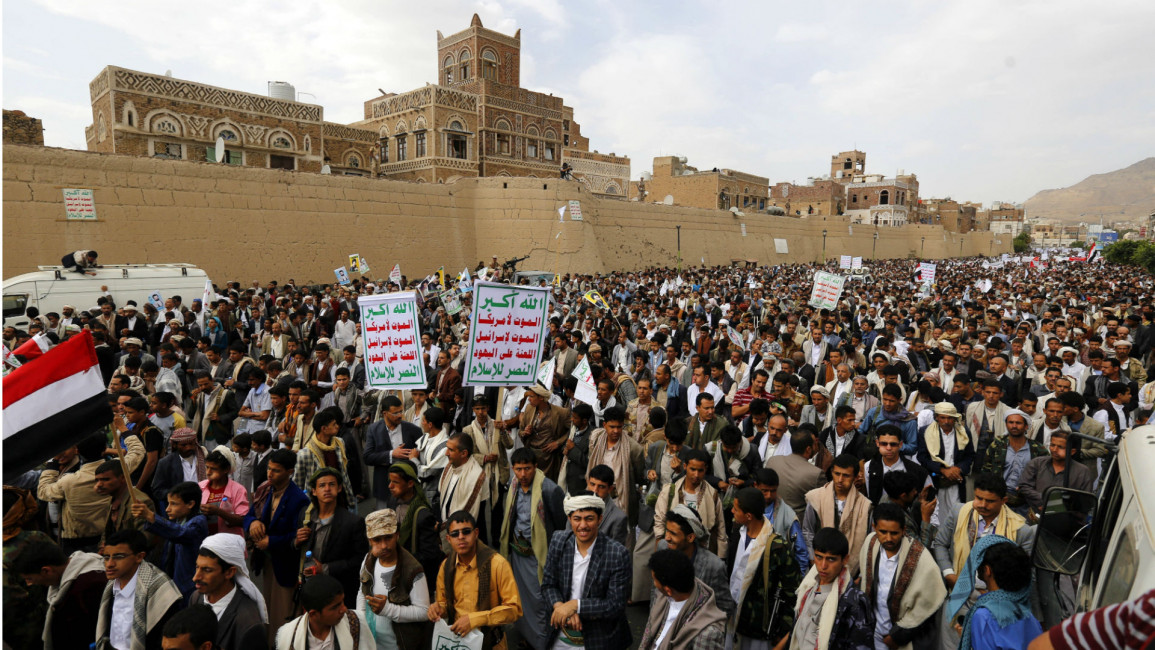Ceasefire struggles to take hold in Yemen
The Saudi-led coalition fighting the Houthis and allied rebels in Yemen suspended its air war Monday to allow desperately needed aid deliveries, but clashes persisted in several areas on the ground, witnesses said.
The Houthis, who are allied to renegade Yemeni army units loyal to ex-president Ali Abdullah Saleh and control swathes of the country, including the capital Sanaa, said they had not been consulted about the unilateral coalition ceasefire that began at midnight (Sunday 2100 GMT).
The Arab regional coalition, which has waged four months of air strikes in support of exiled President Abd-Rabbo Mansour Hadi, announced the five-day truce to allow emergency supplies to flow into the impoverished nation.
It reserved the right to respond to "military activity or movement" but there were no reports of new air raids by dawn despite several new attacks by the rebels.
The Houthis bombarded areas overnight in the southern provinces of Taiz, Lahj and Dhalea, according to witnesses and military sources.
Rebel tanks fired on residential areas in Jebel Sabir in Taiz, witnesses said, sparking clashes with local resistance forces that caused an unknown number of deaths on both sides, witnesses said.
In Marib to the east of the capital Sanaa, fighting broke out before dawn when rebels launched an offensive against anti-Houthi positions, residents said.
UN chief Ban Ki-moon earlier made a plea for all sides to "agree to and maintain the humanitarian pause for the sake of all the Yemeni people".
But Mohammed Ali al-Houthi, the self-described "president of the High Committee of the Revolution", a body formed by the Houthis, said in comments published by the rebel-controlled Saba news agency on Sunday that his group had not been consulted by the UN about the ceasefire.
The group could therefore not give a "negative or positive" answer about the truce, he said.
The United Nations says the conflict has killed more than 3,640 people, around half of them civilians, since late March.
A UN-declared six-day truce failed to take hold earlier this month after it was ignored by both the coalition and the rebels.
Relief supplies, however, have recently begun to trickle into Aden after anti-Houthi fighters secured the southern port city, which had been Hadi's last refuge before he fled to Saudi Arabia in March.
Several ships have docked in Aden since Tuesday carrying thousands of tonnes of aid supplies sent by the UN World Food Programme (WFP) and Gulf nations but distributing the aid, particularly outside the city, presents a major challenge.



